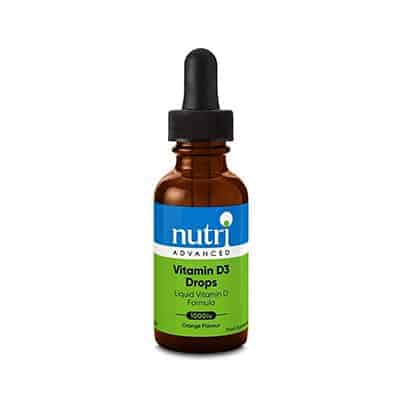Are you getting enough Vitamin D?

Are you getting enough Vitamin D? The odds are you’re not, particularly this year. As our top source of this nutrient is the sun, not food, and most of us have been forced to be home-bound for a long period this spring, yet another byproduct of lockdown is you’re most likely deficient in Vitamin D. It could be the reason you’re feeling down… As a result even the NHS is currently advising taking Vitamin D
Vitamin D, which helps regulate the amount of calcium and phosphate in the body, is called the ‘sunshine vitamin’ because our main source for this crucial nutrient is not food, but the sun. Research shows that 90% of the UK population have below the ‘sufficient’ levels at the best of times – but, with lockdown forcing most of us indoors more this year, experts predict that deficiency is set to be a serious problem.
The annual National Diet and Nutrition Survey shows that the majority of people in this country are shockingly low on Vitamin D, a nutrient that comes predominantly not from our diet (you’d have to eat 2-4 servings of wild salmon every day to get enough) – but from the sun. Through winter there just aren’t enough sun hours in the day in this country for most of us to have optimal levels.
- 90% of the UK population have below the ‘sufficient’ levels recommended
- 75% of young adults, the elderly and British Asian children are deficient
- Up to 20% have dangerously low levels
With Covid-19 and lockdown forcing us indoors most of the day for the past few months, the majority of us will not have not even had the levels of sunlight we would normally. So even the NHS is suggesting we all take supplements.
NHS advice in 2020: consider taking Vitamin D a day to keep your bones and muscles healthy. Our Nutri Advanced Vitamin D3 Drops (£11.50) provides a good maintenance dose
Some groups of people are particularly at risk of deficiency:
- the elderly
- the obese
- under-5s
- pregnant women
Why Vitamin D is crucial
- Adequate levels are necessary for the normal functioning of the immune system.
- Our teeth and bones require good levels for optimum mineralisation.
- It plays a crucial role in the utilisation of calcium and phosphorus.
- It is required for normal muscle function and cell division, and so is important for every single cell in the body.
- Levels are implicated for good mental health. In Finland, for example, where natural light is low for much of the year, the level of SAD (seasonal affected disorder) is 10 times that of anywhere else in the world.
Foods sources
Though our key source of this vitamin is sunlight it does occur naturally in a few foods, including oily fish, oils, egg yolks and fortified dairy and grain products.
Signs of deficiency
- increased risk of death from cardiovascular disease
- cognitive impairment in older adults
- severe asthma in children
- cancer
Symptoms of deficiency include:
- bone pain
- muscle weakness
- Low mood and SAD (seasonal affected disorder)
ON SALE AT THE HUB: for information about the Vitamin D supplements we stock head to our shop
